Table of Contents
- Introduction
- What is Fresh Dill and Why Substitute It?
- Top 10 Substitutes for Fresh Dill
- Flavor Comparison Chart
- When to Use Each Substitute
- Storage Tips for Fresh & Substitute Herbs
- Buying Guide: Choosing the Best Dill Substitutes
- Frequently Asked Questions
- Conclusion
Introduction
When you're out of fresh dill but need to make dill pickles, salmon gravlax, or a creamy sauce, these 10 expert-approved substitutes will keep your dish tasting delicious. Each alternative has been tested for specific applications, with precise ratios and usage tips to ensure perfect flavor every time.
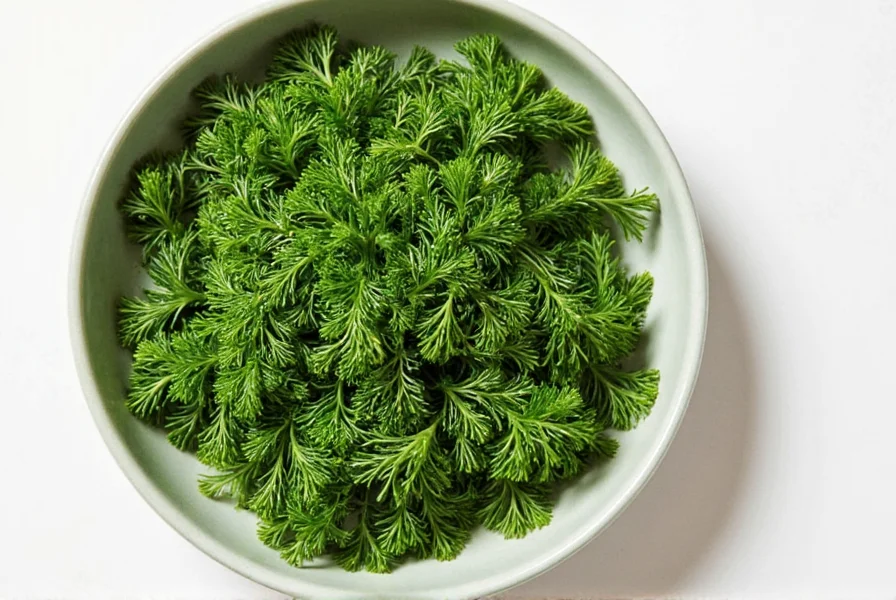
Fresh dill (Anethum graveolens) is an aromatic herb commonly used in Mediterranean, Eastern European, and Scandinavian cuisines. Its feathery leaves have a distinct flavor profile — a mix of citrus, anise, and mint — that makes it ideal for seasoning fish, pickling vegetables, and enhancing creamy sauces.
However, fresh dill can be seasonal, expensive, or simply unavailable at times. That's where finding the right substitute becomes crucial — both for flavor and practicality.
What is Fresh Dill and Why Substitute It?
Fresh dill (Anethum graveolens) is an aromatic herb commonly used in Mediterranean, Eastern European, and Scandinavian cuisines. Its feathery leaves have a distinct flavor profile — a mix of citrus, anise, and mint — that makes it ideal for seasoning fish, pickling vegetables, and enhancing creamy sauces.
However, fresh dill can be seasonal, expensive, or simply unavailable at times. That's where finding the right substitute becomes crucial — both for flavor and practicality.
Top 10 Substitutes for Fresh Dill
Luckily, several herbs and spices mimic dill's flavor and aroma. Here are 10 excellent alternatives, each with its own use case:
- Dried Dill Weed
- Tarragon
- Fennel Fronds
- Parsley
- Cilantro
- Chervil
- Anise Seeds
- Caraway Seeds
- Thyme (Lemon Thyme Especially)
- Mint
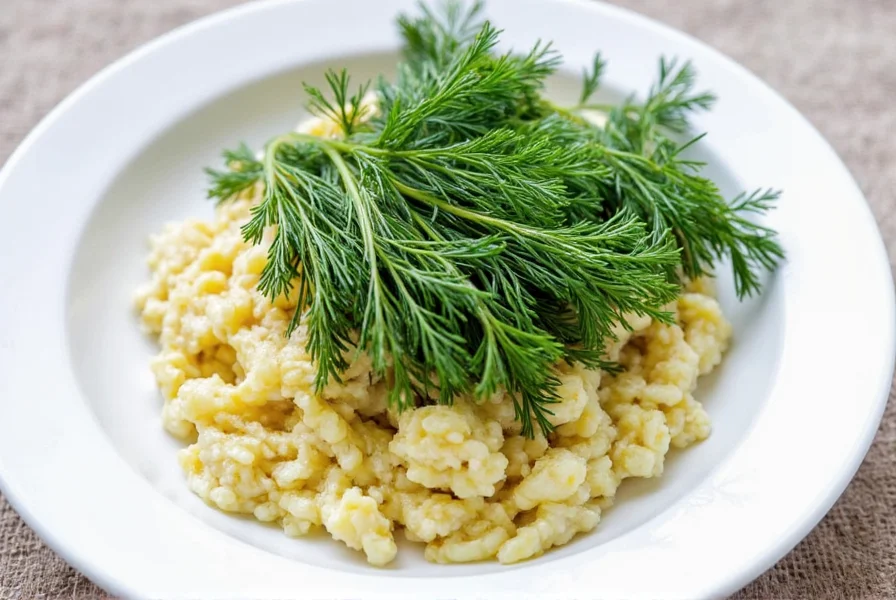
Flavor Comparison Chart
| Substitute | Main Flavor Notes | Best For | Use Ratio |
|---|---|---|---|
| Dried Dill Weed | Earthy, grassy | Long-cooked dishes | 1 tsp dried = 1 tbsp fresh |
| Tarragon | Anise-like, sweet | Salads, dressings, seafood | Use sparingly |
| Fennel Fronds | Light licorice | Sauces, garnishes | Equal amount |
| Parsley | Grassy, mild | Cooked dishes | 2x as much |
| Cilantro | Citrusy, bold | Mexican, Asian cuisine | Same amount |
| Chervil | Mild anise | Elegant dishes, soups | Same amount |
| Anise Seeds | Strong licorice | Baking, marinades | ½ tsp per tbsp dill |
| Caraway Seeds | Nutty, earthy | Rye breads, stews | ½ tsp per tbsp dill |
| Lemon Thyme | Citrus, herbal | Meat, roasted veggies | ½ tsp dried per tbsp dill |
| Mint | Peppery, cool | Sweet dishes, teas | ¼ tsp dried per tbsp dill |
When to Use Each Substitute
Knowing which substitute works best depends on the type of dish you're preparing. Here's a handy breakdown:
- Dried Dill Weed: Ideal for slow-cooked dishes like pickles, stews, or gravies. Add early to let flavors infuse.
- Tarragon: Great for lighter fare like salads, creamy sauces, or delicate fish.
- Fennel Fronds: Perfect for garnishing or adding a mild licorice note to seafood dishes.
- Parsley: Works well in soups, pastas, or casseroles where strong flavor isn't needed.
- Cilantro: Best for salsas, Thai curries, or any dish where a bold, fresh kick is desired.
- Chervil: Adds a subtle anise flavor to French-inspired dishes like omelets or velvety sauces.
- Anise Seeds: Use ground or whole in baked goods or spice rubs that benefit from licorice notes.
- Caraway Seeds: Fantastic in rye breads, cabbage dishes, or hearty bean soups.
- Lemon Thyme: Pairs beautifully with roasted meats, potatoes, or lemon-based dishes.
- Mint: Only recommended for desserts, cocktails, or Middle Eastern meat dishes where cooling freshness complements other flavors.
Storage Tips for Fresh & Substitute Herbs
To keep your herbs fresh or maximize shelf life for dried versions, follow these smart storage hacks:
- Fresh Herbs: Place stems in a glass of water, cover loosely with a plastic bag, and refrigerate.
- Dried Herbs: Store in airtight containers away from light and moisture. Label clearly and replace every 6–12 months.
- Freezing Fresh Dill: Chop finely, place in ice cube trays with oil or water, and freeze. Use cubes directly in soups or stews.
- Crushing Seeds: For stronger flavor, lightly crush caraway or anise seeds before using.
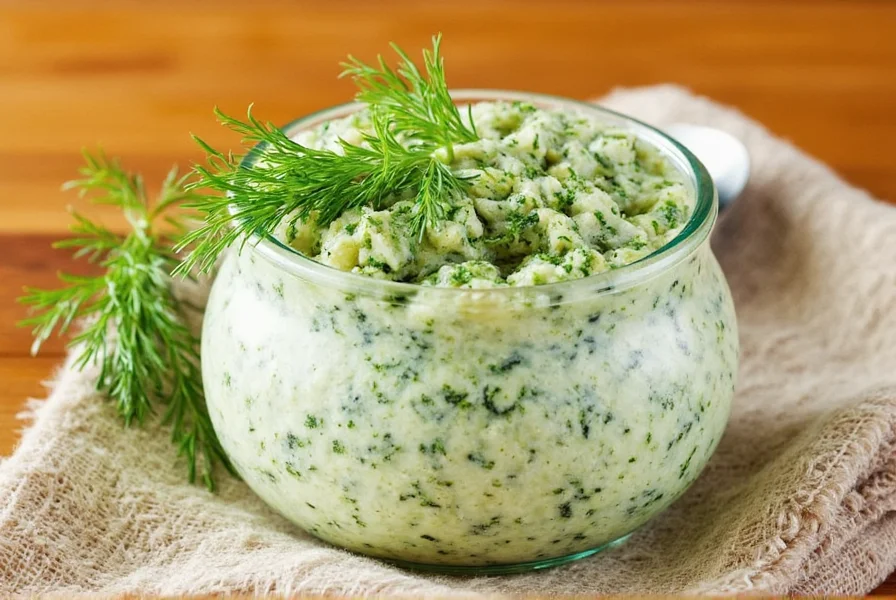
Buying Guide: Choosing the Best Dill Substitutes
Whether you're shopping online or visiting your local market, here's what to look for in quality dill substitutes:
1. Organic Dried Dill Weed

Features: Non-GMO, sun-dried, free from additives.
Advantages: Long shelf life, easy to store, retains most flavor.
Best For: Soups, stews, marinades.
Target Audience: Home cooks and professional chefs needing convenience.
2. Fresh Tarragon Bunch

Features: Vibrant green leaves, fragrant aroma.
Advantages: Excellent flavor, suitable for gourmet dishes.
Best For: Sauces, seafood, egg dishes.
Target Audience: Gourmet home cooks and restaurant chefs.
3. Lemon Thyme Sprigs
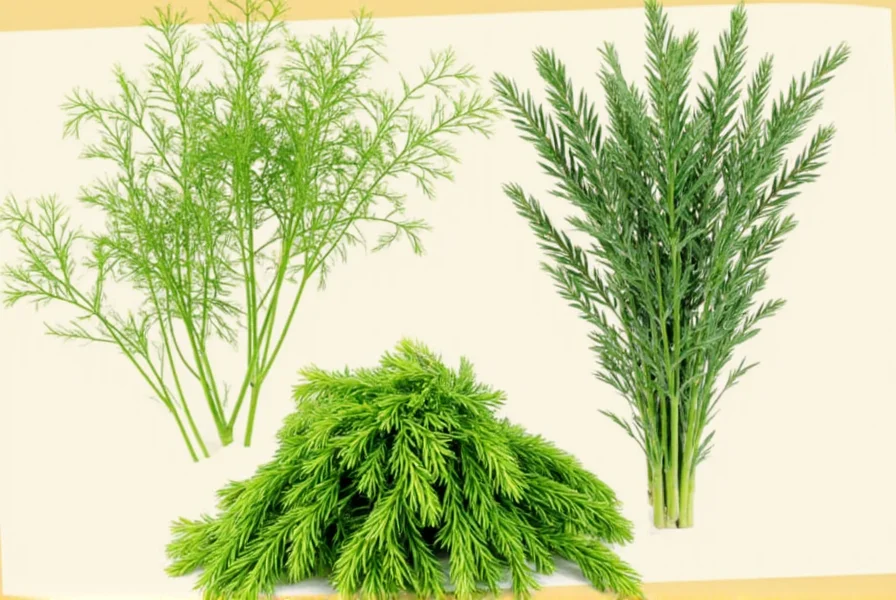
Features: Citrus-forward scent, compact growth.
Advantages: Adds brightness to savory dishes.
Best For: Roasted vegetables, poultry, lemon glazes.
Target Audience: Gardeners and culinary enthusiasts looking for unique flavors.
4. Caraway Seed Packets
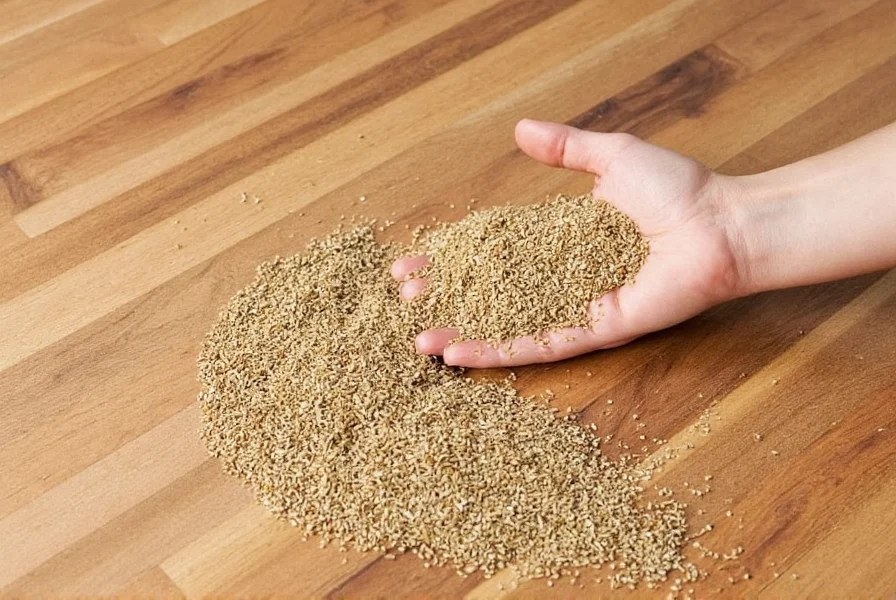
Features: Whole, unground seeds; natural aroma.
Advantages: Rich flavor, multipurpose spice.
Best For: Rye breads, cabbage rolls, sauerkraut.
Target Audience: Fans of German, Eastern European, and rustic cooking.
5. Fennel Frond Bundles
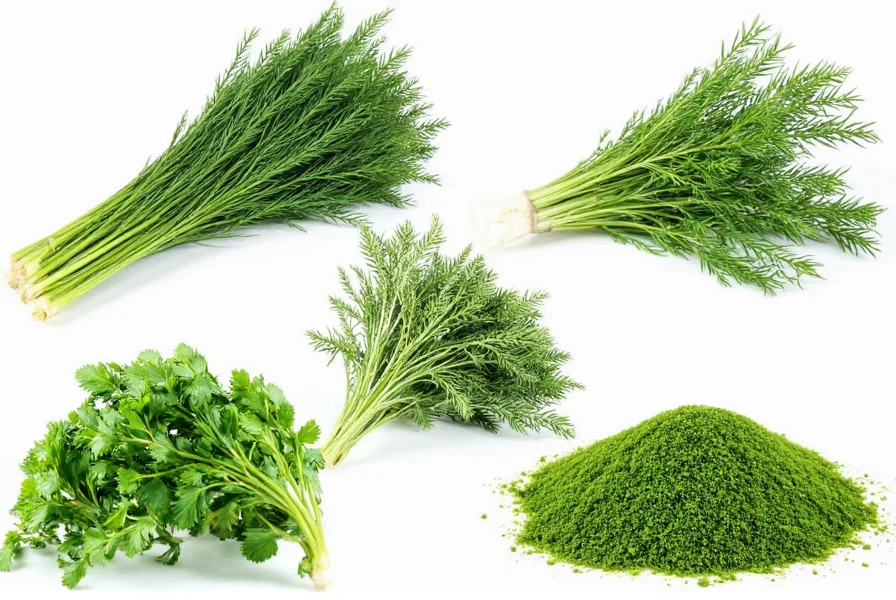
Features: Light texture, similar appearance to dill.
Advantages: Decorative and edible, adds subtle sweetness.
Best For: Seafood platters, garnishes, fresh salads.
Target Audience: Chefs and food stylists wanting visual appeal and flavor balance.
Frequently Asked Questions About Dill Substitutes
What's the best substitute for fresh dill in pickles?
Dried dill weed is actually the most traditional choice for pickling, as it maintains its flavor well during the preservation process. Use 1 teaspoon of dried dill weed for every tablespoon of fresh dill called for in your recipe. Tarragon can also work well for pickles, providing a similar anise-like flavor that complements vinegar brines.
Can I use dried dill instead of fresh dill, and what's the conversion ratio?
Yes, dried dill weed makes an excellent substitute for fresh dill. The general conversion ratio is 1 teaspoon of dried dill equals 1 tablespoon of fresh dill. This is because dried herbs are more concentrated in flavor. When substituting in cooked dishes, add dried dill earlier in the cooking process to allow time for rehydration and flavor development.
What herb tastes most similar to fresh dill?
Tarragon is considered the closest flavor match to fresh dill, as both herbs share anise-like notes. Fennel fronds also have a similar appearance and a mild licorice flavor that approximates dill's profile. For the most authentic substitution, tarragon works best in sauces and seafood dishes, while fennel fronds work well as a garnish or in salads.
Can I substitute dill weed for fresh dill in salmon recipes?
Absolutely. For salmon recipes, dried dill weed works well (using the 1:3 ratio of dried to fresh). Tarragon is another excellent choice for fish as its anise notes complement salmon beautifully. If you're making a dill sauce for salmon, a combination of parsley and a pinch of anise seeds can mimic dill's complex flavor profile effectively.
Is it okay to skip dill entirely in a recipe?
While you can technically skip dill, it will significantly change the flavor profile of dishes where dill is a key ingredient (like Scandinavian gravlax, Greek tzatziki, or traditional dill pickles). For recipes where dill plays a supporting role rather than a starring one, parsley can be used as a neutral green herb substitute. In most cases, using one of the substitutes mentioned in this article will yield better results than omitting the herb entirely.
Can I use caraway seeds as a dill substitute?
Caraway seeds can work as a dill substitute in specific applications, particularly in recipes with Eastern European influences like potato salad or cabbage dishes. Use sparingly - about ½ teaspoon of caraway seeds for every tablespoon of fresh dill. The flavors are similar (both contain carvone compounds) but caraway has a stronger, earthier profile, so it's not a perfect 1:1 substitute.
Conclusion
While nothing quite replaces the vibrant, nuanced taste of fresh dill, these 10 flavorful substitutes ensure you never have to skip your favorite recipes. Whether you're reaching for dried dill weed in a pinch or experimenting with tarragon or fennel fronds for a twist, there's a worthy stand-in for every occasion.
So next time you open your fridge only to find no dill in sight, don't panic — grab one of these clever alternatives and keep the culinary magic alive. And remember, a well-stocked herb pantry is your secret weapon to becoming a fearless cook.

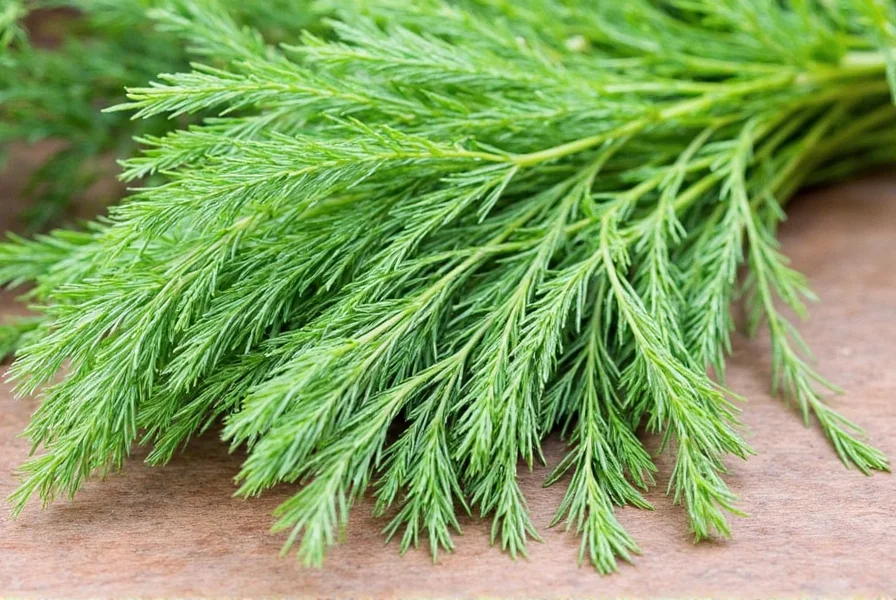









 浙公网安备
33010002000092号
浙公网安备
33010002000092号 浙B2-20120091-4
浙B2-20120091-4